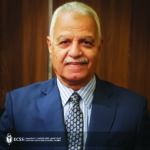The military clashes between the Rapid Support Forces (RSF) and the Sudanese Armed Forces (SAF) changed significantly, being limited to Khartoum’s outskirts with pockets of resistance in a few residential areas, particularly after the army had begun seal-off operations within the neighborhoods.
That result was anticipated and unavoidable in a battle between two military forces that are opposed in terms of identity, history, combat doctrine, and training.
SAF Qualitative Operations
Using Sukhoi aircraft, the SAF conducted sorties against RSF military outposts in the three cities of Khartoum, particularly in the Tayba al-Hasanab camp south of Khartoum, Omdurman (the locality of Umbada, Lane 12), and Eastern Nile state, which weakened the RSF.
Additionally, the Special Forces and their proxies were able to seize multiple weapons en route to the RSF. In Omdurman and Khartoum North, communications equipment, activists, and collaborators were seized, further debilitating the RSF and rendering them under siege.
The SAF also increased the scope of its military operations, not only in Khartoum but also in the state of Al Jazirah and its numerous cities, particularly in the wake of the RSF columns’ escape in an attempt to flee Khartoum to the city of Wad Madani, which is located about 200 kilometers to the east of Khartoum. Military operations also covered other areas, including the Giad Automotive Company’s industrial zone in the towns of Nuba, Al-Baqir, and Al-Masoudia.
As part of its effort to seal off residential areas, the SAF was able to apprehend a number of RSF snipers, who were armed with numerous long-range weapons, and seize 69 sniper rifles and three vehicles that were transporting fuel and weapons. Together, the Special Forces and the Joint Force of Sudan were able to cut off the remaining RSF from the cities of Omdurman, Khartoum North, and Khartoum.
Effects and Reactions to the SAF Military Operations
As the SAF advanced, a large number of RSF soldiers and officers, led by Captain Adam Dawood Hammad, defected and declared their allegiance to the SAF. This occurred at the same time as public outrage over RSF abuses of civilians, whether in the current conflict or earlier practices during the 2003 Darfur conflict, was growing, which led international organizations to denounce the use of excessive force against helpless civilians.
In addition to the numerous violations in Khartoum’s residential areas, the situation in the Darfur region has gotten worse, particularly after the clashes took on an ethnic overtone given the region’s demographic split between Arab and African tribes.
This crucial aspect of the Sudanese conflict recently manifested itself in the city of Sirba, which is located north of Geneina, the capital of West Darfur. There, looting, theft, and ethnic violence were observed, with military vehicles and motorcycles being used in some incidents, and all service facilities have been ransacked. Thousands of people were ultimately displaced as a result, and the city was transformed into a military base for the RSF, which sent out more than 127 four-wheel-drive vehicles loaded with various weapons and ammunition after making sure the local native population had been driven out.
In addition, the RSF detained the local leadership of the Alarenga ethnic group and purposefully destroyed infrastructure, including cell towers, in an effort to cut off the region from the outside world, which also meant cutting off this city from the rest of the world. This is a dangerous move that will have far-reaching consequences in the future.
Prospects for Peace Initiatives
The persistence of military clashes in Sudan undermines numerous peace initiatives’ chances of success, which saw a significant advancement following the summit of Sudan’s Neighboring States in Cairo, which was followed by the holding of the consultative meeting of the foreign ministers of Sudan’s neighboring states in the Chadian capital, N’Djamena.
That said, the main barrier to real advancement in the peace process continues to be the military aspects of the Sudanese crisis. For instance, the SAF participated in the Jeddah negotiations, which were being conducted in coordination between the Kingdom of Saudi Arabia and the United States, as a mechanism to establish direct understandings between the SAF and the RSF. Notably, the talks in Jeddah are taking place in total secrecy, with no information about the negotiations’ status or the conduct of military operations between the two parties to the conflict being revealed.
However, due to the RSF delegation’s implacable stance and failure to carry out the agreements it had previously made with the SAF, chief among them the evacuation of hospitals, homes, and service facilities, as well as the RSF’s disregard for the established guidelines in wars to protect defenseless civilians, the SAF delegation was forced to return to Khartoum for consultations.
Evidently, the SAF delegation’s decision to return to the Jeddah negotiations, amid the latest developments in the ongoing conflict, was motivated by the mediation’s potential to resolve the issues preventing further negotiation. The SAF continues to stress in negotiations the divergent point that sparked the conflict: that it is ready to prepare camps for RSF in preparation for their integration into the SAF or the demobilization of those who do not meet the conditions that guarantee the future professionalism, integrity, and impartiality of all members of the SAF.
The complicated nature of the Jeddah negotiations makes it difficult to have high hopes for the peace processes that are being pushed forward by regional and international efforts. There is currently a lot of worry about the war continuing and spilling over into many African countries, which are already going through a serious crisis of national integration.













